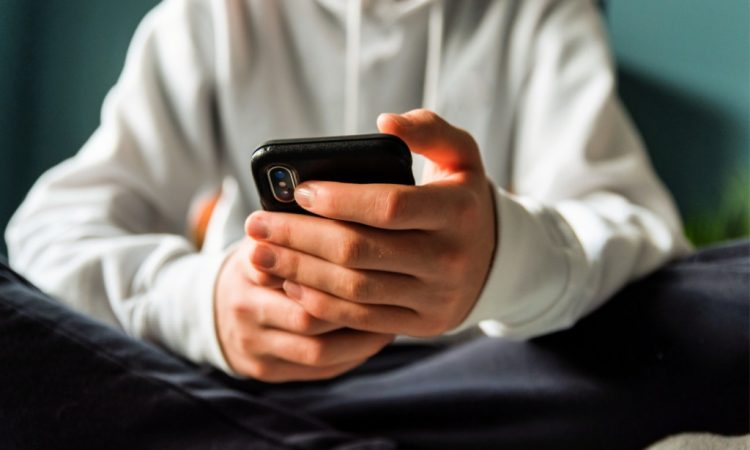On Thursday evening, Utah Governor Spencer Cox signed two pieces of social media regulation into law that’s going to make social media use look very different for minors in that state. The new law requires social media companies to get parental consent for minors using their apps and websites. Also under the law — H.B. 311 and S.B. 152, if you’d like to read the official legislature — these tech companies are required to block social media access to minors between 10:30 p.m. and 6:30 a.m. (though it says that parents are able to adjust the limits as they see fit).
Additionally, each social media platform must also outlaw direct messaging from anyone the minor hasn’t friended or “followed,” and underage accounts are to be blocked from all search results. Not only that, but tech companies are no longer allowed to collect children’s data or target ads toward that demographic.
At first glance, there are a lot of positives to Utah’s new social media laws. Ask just about any parent of a kid who has an online presence and they’ll tell you that there’s a lot to worry about: predators, online bullying, and the general sense of lowered self-esteem that has been proven to effect kids who spend time scrolling through social media apps. These laws seem to put in place protections to keep these things from having such an impact on our kids, and that’s what we all want — right?
Well, as it turns out … these “protections” may not be so protective for all kids. Even family media advocacy group Common Sense Media has mixed feelings about Utah’s new legislation. In a statement put out by the organization yesterday, Jim Steyer, Common Sense Media’s Founder and CEO, praised one part of the law and encouraged other states to follow suit: “Today’s signing of HB 311 is a huge victory for kids and families in Utah. And this law adds momentum for other states to hold social media companies accountable to ensure kids across the country are protected online.”
But then came the part that the organization is not so sure about. “Unfortunately, Governor Cox also signed SB 152 into law, which would give parents access to their minor children’s posts and all the messages they send and receive. This would deprive kids of the online privacy protections we advocate for.”
Privacy advocates agree with Steyer’s statement. “These bills radically undermine the constitutional and human rights of young people in Utah, but they also just don’t really make any sense,” Evan Greer, director of digital advocacy group Fight for the Future, told The Washington Post. “I’m not sure anyone has actually thought about how any of this will work in practice. How will a tech company determine whether someone is someone else’s parent or legal guardian? What about in situations where there is a custody battle or allegations of abuse, and an abusive parent is attempting to obtain access to a child’s social media messages?” There’s also concern for the safety of LGBTQ+ and other marginalized groups of kids, whose social media access could literally act as a lifeline.
Ari Cohn, free speech counsel for the tech policy think tank TechFreedom, told NBC News that the new laws “could even create equity issues by potentially locking out kids whose parents aren’t readily available to provide consent.”
Also, one of the biggest questions we have as parents of tweens and teens: have the lawmakers ever met a tech-savvy kid? If they want something badly enough, they will find a loophole, and Twitter users were quick to point this out.
“Idk if anyone’s raised a teenager, but they are v smart,” tweeted user Kaelyn Gray. “There’s a way around anything. (Including changing their clock to a different time zone to skirt around a curfew). If a parent ain’t actively parenting nothing will change, this will accomplish nothing.”
User Michael Marks agreed. “What’s it going to be, a prompt that asks if you’re an adult? Those same prompts I lied to countless times as a minor and an adult. Good luck when the children have a better comprehension of the technology than the adults attempting to enforce it or the politicians writing it do.”
Social media companies have until March 1 of next year to comply with the laws; after that point, non-compliance comes with potential civil and criminal penalties.
Though Utah is the only state at this point to have enacted such laws governing minors’ use of social media, four other states are currently considering other legislation that includes similar social media parental consent: Arkansas, Connecticut, Minnesota, and Ohio.
The law is well-intentioned overall, but treads into some questionable territory. Does protecting the mental health and online safety of some kids put others at risk? Is it government overreach, infringing upon the privacy rights of minors and the rights of parents to make decisions on their behalf? Twitter used Donna summed it up: “Beautiful state, nanny law. Are you verifying the important stuff (like dental care, medical care, etc.) or just things that aren’t your business?”
These celebrity parents have gotten honest about their rules when it comes to technology.

Source: Read Full Article

